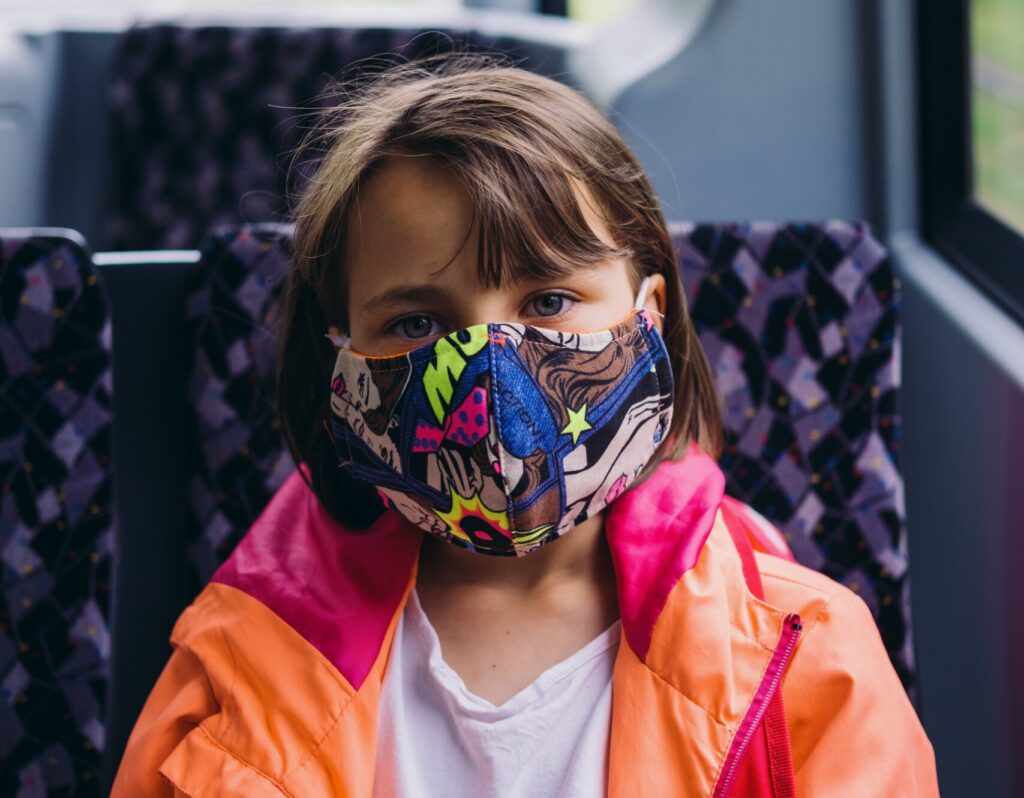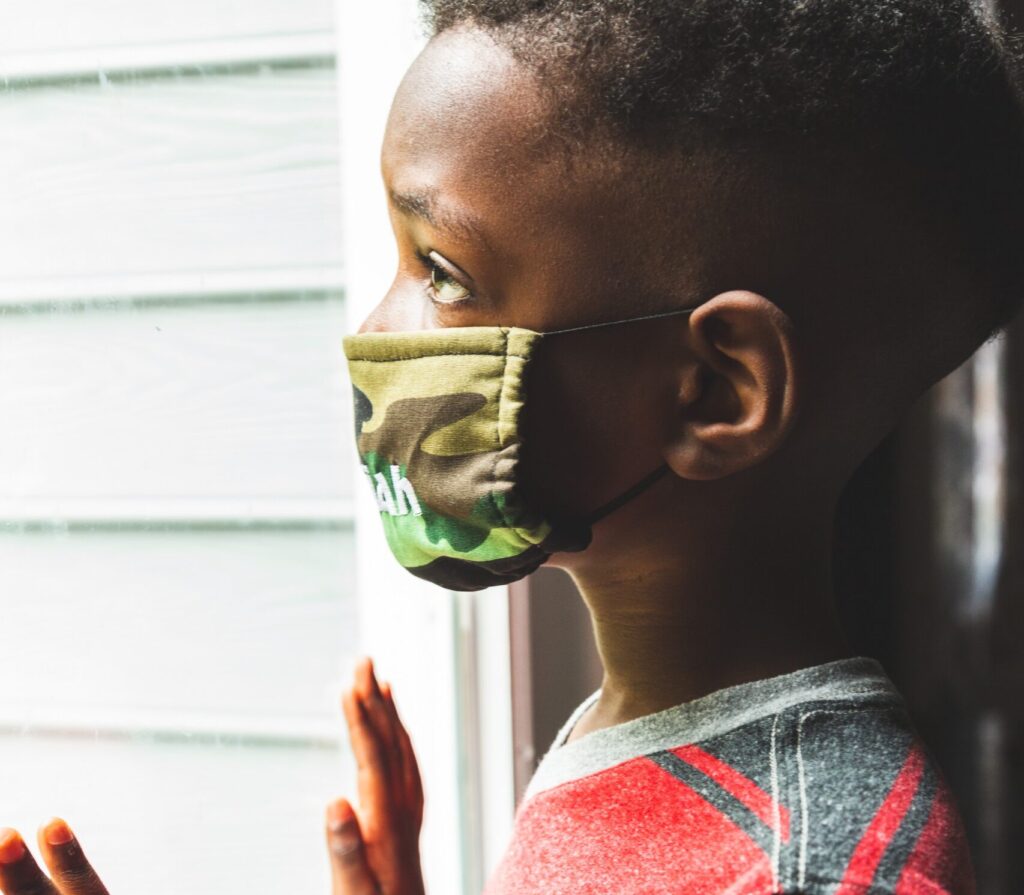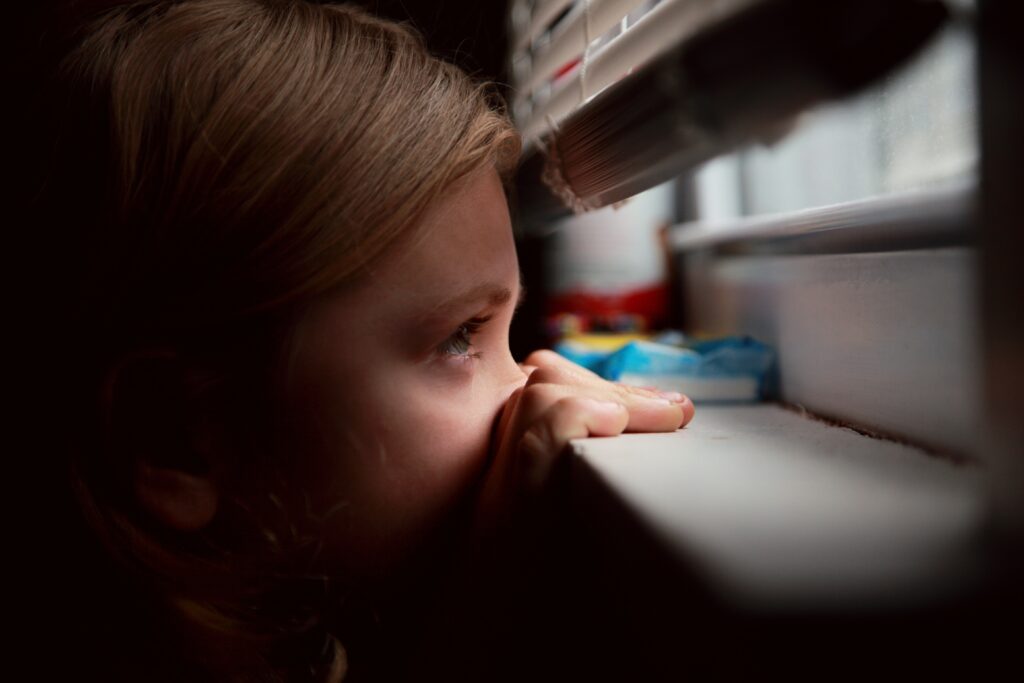Posted July 01st 2020
How is COVID-19 impacting children’s mental health?
At the NSPCC, we have seen that the global health crisis caused by the COVID-19 pandemic, has had a significant impact on the mental health and well-being of children and young people.
We record the top concerns of children and young people in Childline sessions, and since the beginning of the outbreak, we have seen an increase in children reaching out with concerns about their mental and emotional health.

An 18-year-old girl told Childline:
I am scared about the Coronavirus. I’m finding it hard to cope at the moment and it feels like it’s the end of the world. When I was little I developed OCD and had been to therapy which has helped me to deal with the stress better. However, the Coronavirus has triggered it again and I’m really struggling, I don’t know what to do. Please help.
Between the 10 January and 24 May 2020, Childline delivered almost 8,500 counselling sessions across the UK to children and young people who were concerned about Coronavirus.
Of these, 3 of the 4 top main concerns that children and young people are talking about relate to mental and emotional health and wellbeing.
Mental health remains the top concern for children and young people contacting Childline. Some young people tell us they are having suicidal thoughts and feelings and some talk about using self-harm to cope.
More than half of all counselling sessions delivered by Childline volunteers to children in Wales (in April) related to mental health, suicidal thoughts and feelings and self-harm.
Lockdown brings new issues and exacerbates old ones
At Childline we’re hearing how children and young people are finding it hard to deal with emotions they may not have had before because of the fear, anxiety and distress that the pandemic, and measures to combat it, are causing.
They have talked about struggling with increased feelings of depression and anxiety, having panic attacks more frequently, having nightmares or finding it difficult to fall asleep, and feeling lonely, isolated or trapped.

This is exacerbating other day-to-day stresses and worries young people face around schoolwork, friendship groups, and home life.
Sadly, for some children, there will be more profound issues already facing them – including unsafe home environments involving abuse, domestic violence, or difficult family relationships. For children facing these issues, lockdown has intensified the situation, concealing abuse behind closed doors, and isolating them from their usual support networks.
We have seen calls to our NSPCC helpline about domestic abuse surge by almost a third since the start of the lockdown, to an average of one an hour.
Even though children are not always the ones to suffer physical harm, they have told Childline they feel trapped and, in some cases, it has led to depression, suicidal thoughts, self-harm, and eating disorders. A boy aged 14 told Childline:
“I really need your help; my dad has been physically abusing my mum. He has an anger problem and it’s getting out of hand. The smallest things make him angry and he starts shouting. I’m terrified of him and I’ve had enough, I can’t take it anymore – please help me!
We know that the combination of a lockdown, closure of schools and lack of contact with their usual support networks will mean many vulnerable children will be at increased risk of mental health difficulties.
Access to support
Children and young people living with poor mental health and emotional well-being need urgent access to specialist support, both now during the COVID-19 crisis and as we move towards recovery. However, we are concerned about reports from young people that they are experiencing a reduction in mental health support at this time.
Young people who have been receiving ongoing support for existing mental health concerns are telling Childline that they are either no longer receiving support or support has been reduced. As a result, some young people feel like their mental health is getting worse.

“I’m going through a lot right now. I feel really anxious about everything. I’m stuck at home and having a horrible time. I feel so upset and lonely. My child and adolescent mental health (CAMHS) appointments have been cancelled because of the Coronavirus. The news has made my mental health worse and now all the schools have been closed there are more arguments at home.” (Girl, 16-18)
A small number of Childline counselling sessions have also been from young people receiving ongoing mental health support in hospital. They are distressed because they can no longer receive visitors or have been moved in order to make space for coronavirus patients.
Recently launched survey findings have highlighted similar concerns about children and young people’s access to mental health support during COVID-19.
A survey by Young Minds indicated that 83% of respondents felt that the coronavirus pandemic had made their mental health worse.
Of those accessing mental health support prior to the crisis, 26% of young people said that they were not currently able to access support.
Initial findings* released from the Children’s Commissioner for Wales ‘Coronavirus and Me’ survey on the impact of coronavirus on child and young people in Wales revealed that while the majority (77%) of children and young people (age 7-11) said that they know where to get help if they need support to feel happy and well, only 39% of young people (age 12-18) would feel confident seeking school counselling at the current time.
New opportunities
Despite the devastating impact of the pandemic, it provides an opportunity to reconsider how we best meet children’s mental health needs going forward, particularly ensuring needs are recognised and addressed sooner through a more universal and trauma-informed approach.
Schools offer an ideal setting for early mental health support, and we, therefore, welcome Welsh Government’s increased mental health funding for enhanced school counselling and their recognition of the increased impact of Covid-19 on mental health.
We also support the recent announcement that additional funding has been made available for mental and emotional support in schools for children under the age of 11.
However, it is important to acknowledge that many children will be traumatised by the experiences of lockdown, so besides resourcing school counselling and CAMHS services, as we move towards recovery we need to take this opportunity to develop a universal trauma-informed resilience programme that is available to all children in schools, who have been affected by COVID-19.
This is particularly important if we are to be ready for the anticipated surge in demand for children’s mental health services following lockdown.
Support for children and young people
Childline is a free, confidential counselling service on the phone and online for any child or young person in the UK under the age of 19. It provides advice and support to young people whatever their concern. Childline was first started in 1986 by Esther Rantzen, and is now a service provided by NSPCC.
During coronavirus, Childline continues to be there for children, online, and on the phone. We are there to talk directly to children via chat and voice calls on 0800 1111, between 9am and 12pm. Outside these times, children can contact Childline by email.
Childline has built a large online community where children can get support from their peers on message-boards and use expert resources to help them through any issue they are concerned about. Childline’s Calm Zone provides children and young people with a range of activities and tools that they can use to help them feel better when they are anxious, scared or sad, including breathing exercises, yoga and games. The same pages translated into Welsh are available here.
Tips on supporting children during COVID-19
Advice for adults:
We know that many people, including parents and teachers, may need to offer support to a young person to support their mental health, so we would advise:
- Encourage them to talk about their feelings and worries
- Ask them what they already know about it
- Be calm, honest and informed about the facts
- Don’t dismiss their fears and reassure them that you are there to listen
- Encourage them to use Childline’s message boards to talk to other young people, or use Childline’s Calm Zone
The NSPCC Learning website has lots of other free resources for parents/carers and professionals to help support children and families during this challenging period.
This includes safeguarding considerations for remote teaching safely; advice on how to have difficult conversations about coronavirus; information on how to spot signs of abuse and neglect while social distancing; and bilingual resources to help adults respond to children disclosing abuse.
The NSPCC Helpline is there for any adult concerned about the welfare of a child. Our trained professionals will talk through your concerns, give expert advice and take appropriate action to protect the child. Call us on 0808 800 5000 or email help@nspcc.org.uk
* Over 23,700 children and young people aged 3-18 shared their views through the Coronavirus and Me Survey. 2000 responses were used for the initial findings. A full qualitative analysis is underway which will be reported on at a later date.
Sign up now and receive new blog posts to your inbox.
